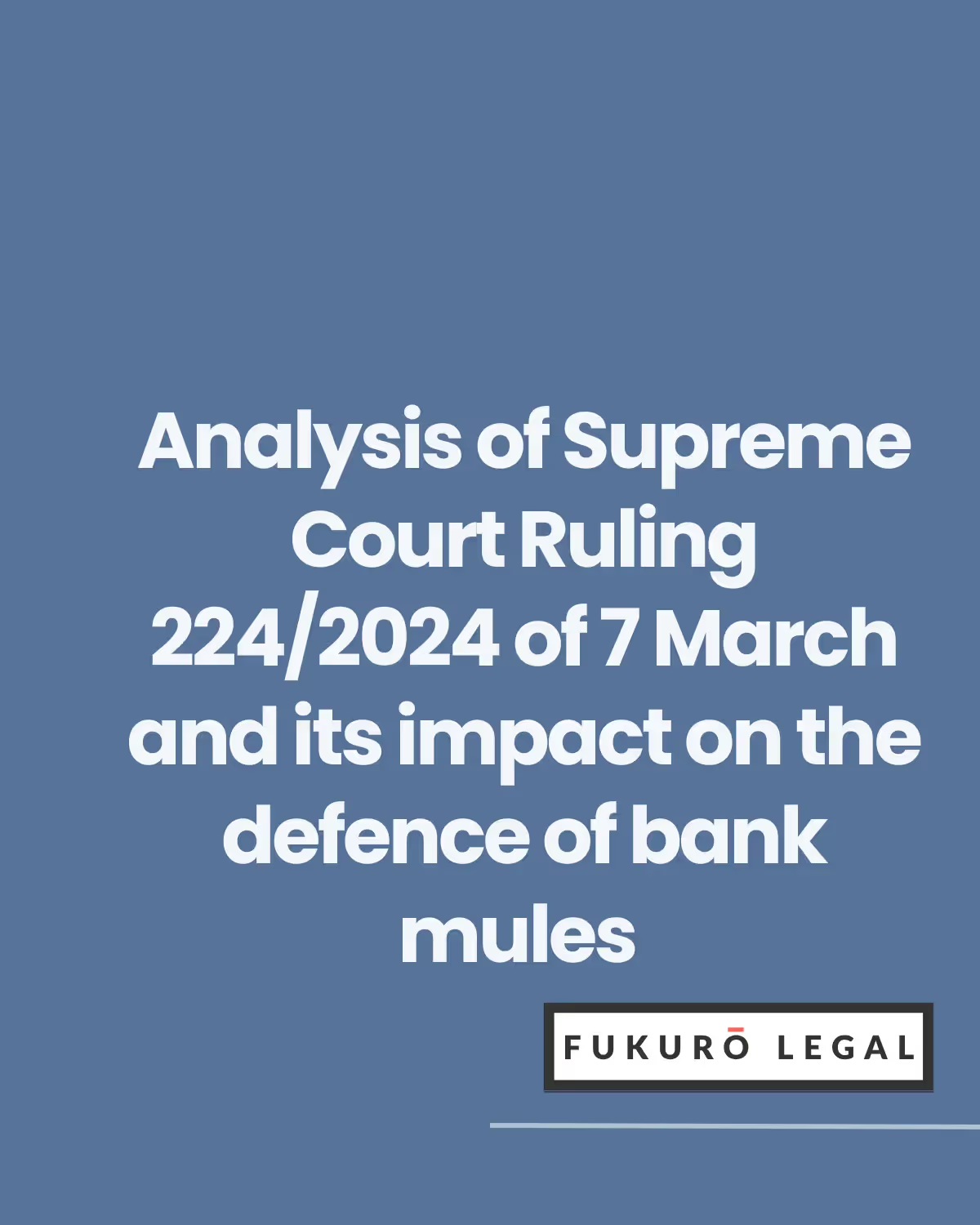Case Context
In this case, the defendant provided his personal data to an unknown third party (the scammer), who used this information to open a bank account. The account was then used to receive a transfer of 850 euros as payment for a firearm fraudulently offered on a digital platform. The victim never received the product, and although the defendant was initially convicted of reckless money laundering under Article 301.3 of the Spanish Criminal Code, the Supreme Court overturned this conviction. The ruling held that the facts did not constitute money laundering nor criminal liability under the alleged legal category.
Relevant Jurisprudential Grounds for the Defense of Money Mules
In this ruling, the Supreme Court develops key arguments that limit the possibility of criminalizing certain behaviors connected to the use of bank accounts and personal data in fraudulent activities. These arguments are essential when addressing accusations against money mules, particularly in defining the scope of criminal liability.
The Court determined that the conduct attributed to the defendant did not meet the elements of money laundering due to two main factors:
1. Relationship between the conduct and the fraudulent act
The Court differentiates between actions aimed at carrying out the predicate offense (fraud) and subsequent actions intended to launder illicitly obtained assets. In this case, opening the account was not an act of concealment or legalization, but rather a tool to execute the fraud.
The Court emphasized: “This is not an action aimed at introducing funds into the legal market that need laundering because of their criminal origin. The account was not opened to legalize the proceeds of fraud, but to perpetrate the fraud itself.”
This reasoning is highly relevant for the defense of money mules, as it allows the argument that the use of the account was part of the execution of the fraud, not for laundering purposes. This excludes the application of Article 301 of the Criminal Code.
2. Principle of insignificance
The amount involved was 850 euros. Jurisprudence, including this decision, establishes that money laundering requires a minimum economic significance, aligned with the socioeconomic importance of the protected legal interest. The Court noted: “Trivial business, of insignificant amounts, is not typical.”
This reasoning reinforces proportionality in applying the law and can be used to defend money mules who handled small amounts, arguing they do not meet the threshold required to constitute a money laundering offense.
Impossibility of Applying Negligence to Intentional Crimes
The Supreme Court referenced Article 12 of the Criminal Code, which states that negligence is only punishable when expressly provided. Fraud requires intent, whether direct or eventual. This means negligent or reckless acts—such as providing personal data without the intention to defraud—are atypical from a criminal standpoint.
The Court reasoned that, although the defendant “could and should have imagined that his data might be used for fraudulent purposes,” there was no evidence of eventual intent. Instead, the defendant was misled by the scammer under an apparently reasonable justification. For defending money mules, this supports the argument that the accused had no intent or sufficient knowledge of the illicit purpose.
Distinction Between Money Laundering and Fraud
The ruling underscores that money laundering requires a consummated predicate offense and that the illicit assets be reintroduced into the legal market. The Court clarified: “If the perpetrator of the fraud were identified, he would not be accused of both fraud and self-laundering. That is clear proof that we are exclusively facing a fraud offense.”
For money mule cases, this means their actions must be analyzed within the context of the principal offense (fraud, scam, etc.), and not as an autonomous money laundering act—unless there is a subsequent stage of concealment or legalization of funds.
Conclusion
Supreme Court Judgment No. 224/2024 provides strong arguments for the defense of money mules in cases where their involvement is limited or based on recklessness. This jurisprudence reinforces the importance of proportionality, the exclusion of negligent conduct, and the need to distinguish between intentional and negligent crimes. It also highlights that money laundering cannot be applied indiscriminately in cases of low economic significance or where the defendant’s actions were not aimed at concealing or legalizing illicit assets.
These principles allow defense attorneys to structure strategies focusing on lack of intent, atypical conduct, and absence of socioeconomic impact—protecting individuals whose participation was minor or manipulated.

